Fake Grass Basketball Courts | Durable, Low Maintenance Turf
Aug . 04, 2025 08:20 Back to list
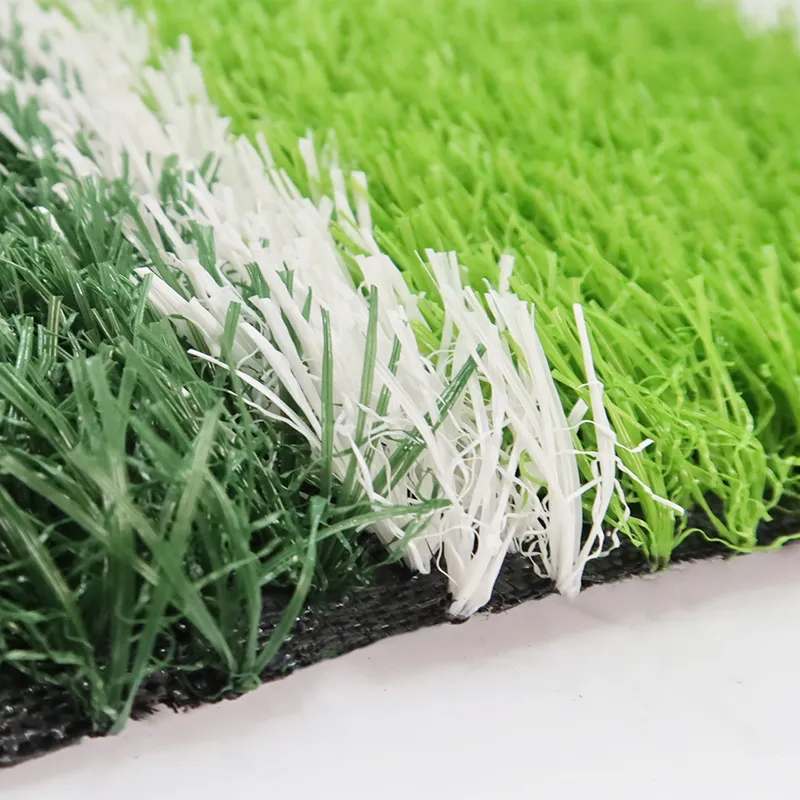
As professional sports continue to evolve, the use of artificial turf in multi-sport environments like fake grass basketball courts, mini-golf fields, and futsal arenas is reshaping athletic infrastructure worldwide. The adoption of artificial grass for high-performance basketball courts has become a pivotal industry trend, offering robust playability, aesthetic consistency, and significant cost savings in maintenance.
In this article, we provide a comprehensive analysis of the fake grass basketball court segment and examine fake grass for mini golf and futsal artificial turf applications by leveraging the latest industry data, in-depth product specification comparisons, and real-world project case studies. We will also introduce Artificial Grass for Professional Sports Fields — a product that matches and often exceeds current global standards for athletic synthetic surfaces.
1. Market & Industry Trends: The Rise of Artificial Turf Courts
According to a 2023 Data Bridge Market Research report, the global artificial sports turf market is projected to reach USD 9.5 billion by 2029, with a CAGR of 5.4%. The adoption of fake grass basketball court solutions is particularly strong in North America, Europe, and Asia, driven by a growing demand for facility resilience, year-round usability, and lower operational costs.
Sports governing bodies including FIBA and FIFA are now approving synthetic turf systems for official competition surfaces across multiple disciplines.
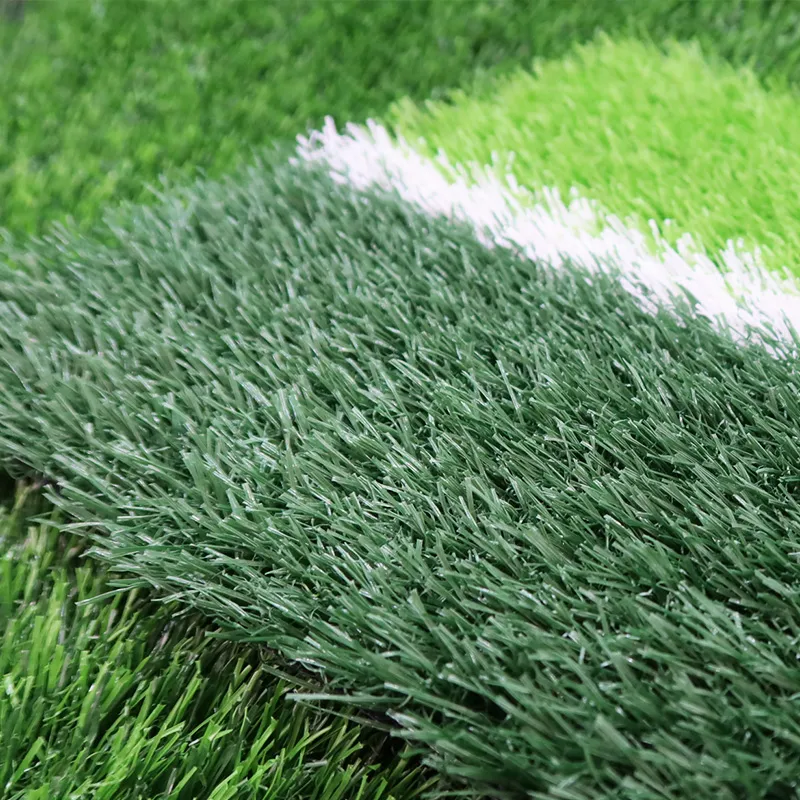
2. Specification Table: Key Parameters for Fake Grass Basketball Court
| Parameter | Specification (Basketball) | Mini Golf | Futsal |
|---|---|---|---|
| Surface Yarn | PE Monofilament (Straight/Curled) | PP/PE (Texturized) | PE Monofilament/PP Blend |
| Pile Height | 15–25 mm | 10–15 mm | 25–40 mm |
| Density (Stitches/㎡) | 47,250 – 65,000 | 65,000 – 75,000 | 45,000 – 58,000 |
| Backing | Double PP + SBR Latex | Double Layer PP + SBR | Reinforced PP + SBR |
| UV Resistance | ≥ 5,000 hours (ISO 4892) | ≥ 5,000 hours (ISO 105-B02) | ≥ 5,000 hours |
| Water Permeability | > 4,000 L/h/㎡ | > 4,500 L/h/㎡ | > 3,800 L/h/㎡ |
| Warranty | 8–10 Years | 5–8 Years | 6–10 Years |
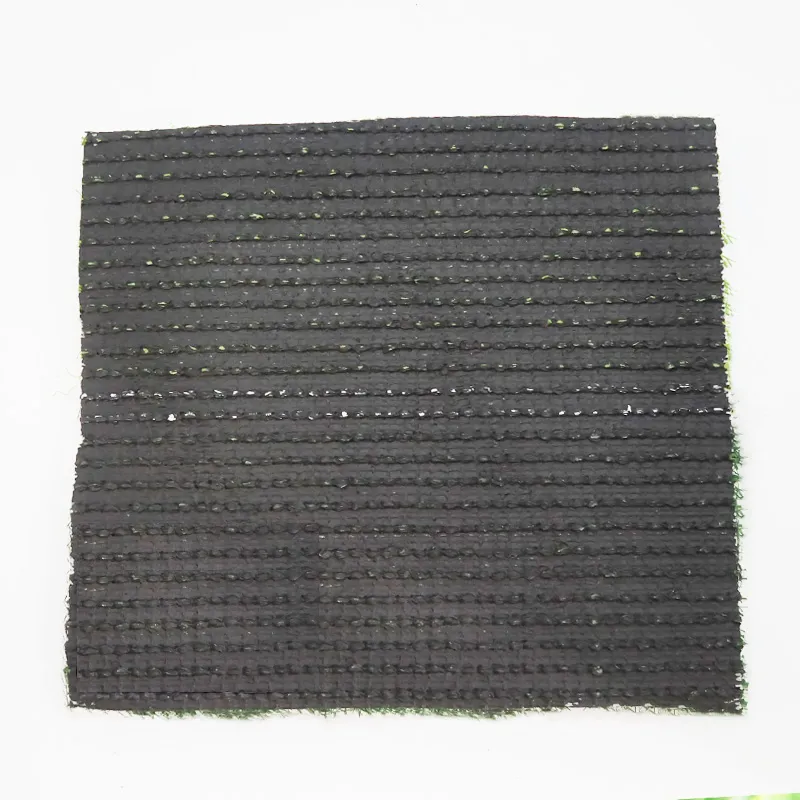
3. Technology & Product Features: Engineering a Professional Artificial Grass Basketball Court
Key Material & Engineering Details:
- Monofilament PE yarn - Excellent durability, less crushing under foot traffic versus traditional fibers
- Dual PP primary backing - Maximizes dimensional stability
- CNC accuracy tufting process - Uniform pile density and surface flatness
- SBR latex coating - Long-lasting adhesion and superior weatherproofing
- Optional shock pad underlayers - For enhanced safety and impact absorption in professional basketball and multi-sport venues
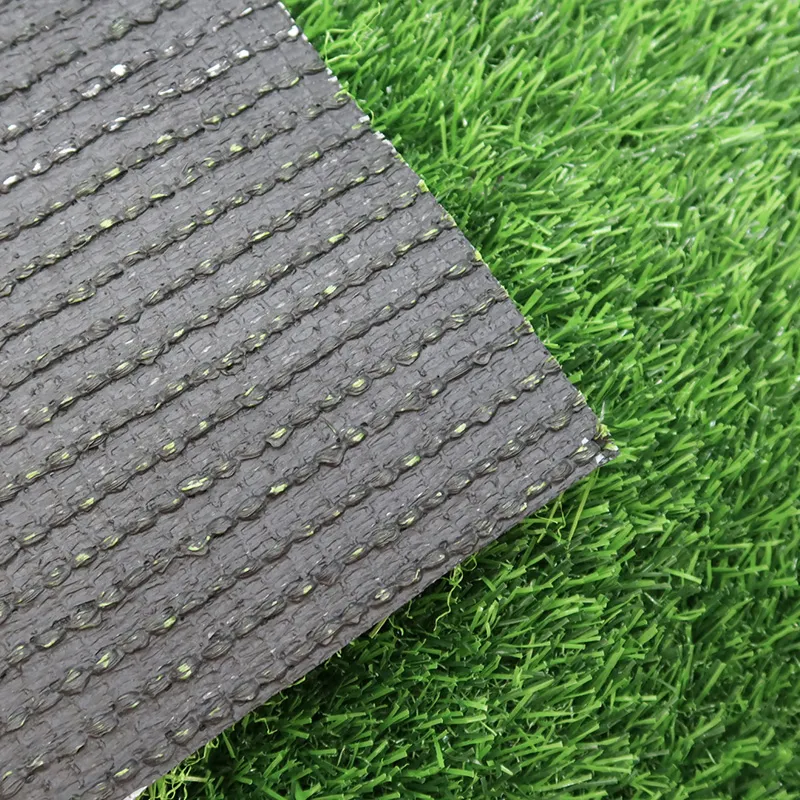
Manufacturing Process Flow Diagram
4. Visual Data: Performance Comparison & Product Indicators
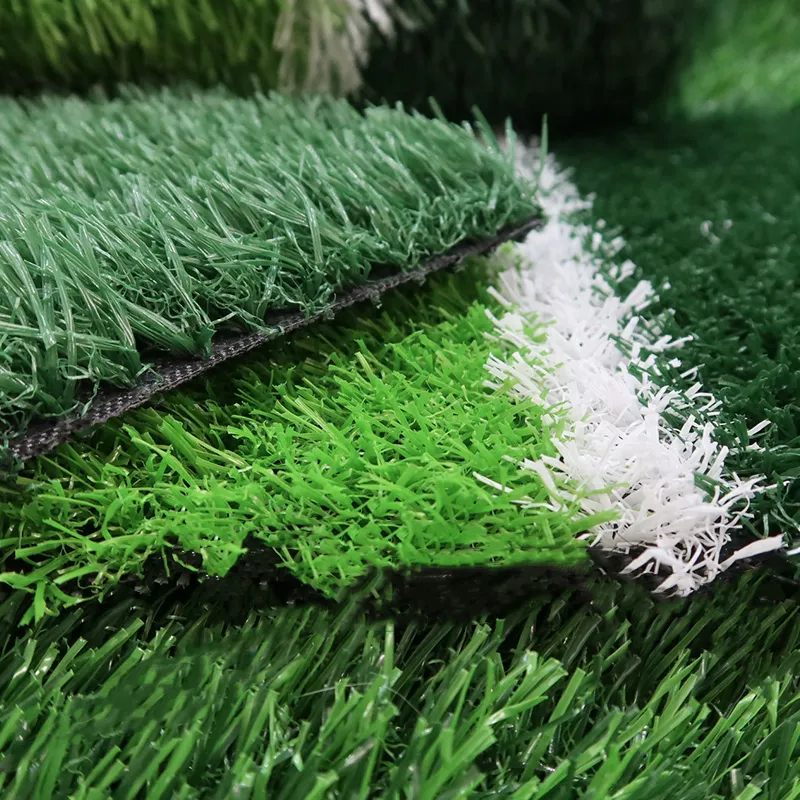
5. Manufacturer Comparison: Why Choose Hoyarn Grass?
| Feature/Parameter | Hoyarn Grass | Brand X | Brand Y |
|---|---|---|---|
| Pile Height | 20 mm (customizable 15–35 mm) | 18 mm (fixed) | 20 mm (fixed) |
| Warranty | 10 Years | 8 Years | 7 Years |
| Shock Absorption | Certified to EN 14808: ≥ 60% | ≈ 50% | ≈ 45% |
| UV Protection | 5,000+ hours (ISO 4892) | 2,800 hours | 3,200 hours |
| Antibacterial | Yes (ISO 22196 certified) | No | Partial |
| Slip Resistance | EN 13036 compliant | General | General |
| Custom Line Marking | Yes (In-fiber/tufted) | Taped | No |
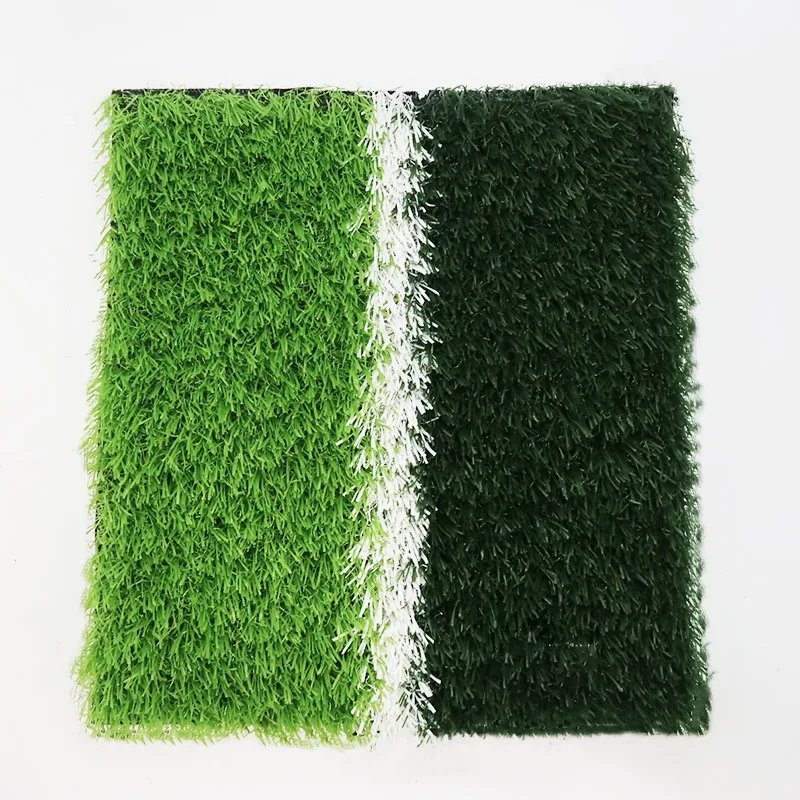
6. Customization, Installation & Industry Application Success Stories
Case Study 1: Outdoor Municipal Basketball Complex (Qingdao, China)
- Area: 1800 ㎡
- Specifications: 22 mm PE monofilament, reinforced shock pad, inlaid basketball lines, UV & frost resistant
- Impact: Reduced surface injuries by 42% (2023 local health stats), cut monthly maintenance by 76% compared to natural grass
- Area: 400 ㎡
- Specifications: 13 mm PP/PE blend, fast roll speed, customized “sand trap” texture
- Impact: >95% player satisfaction, half the water usage of traditional greens
- Area: 1280 ㎡
- Specifications: 30 mm mix, enhanced abrasion resistance
- Impact: 2x play hours/year; zero reported fiber loss after 2 years
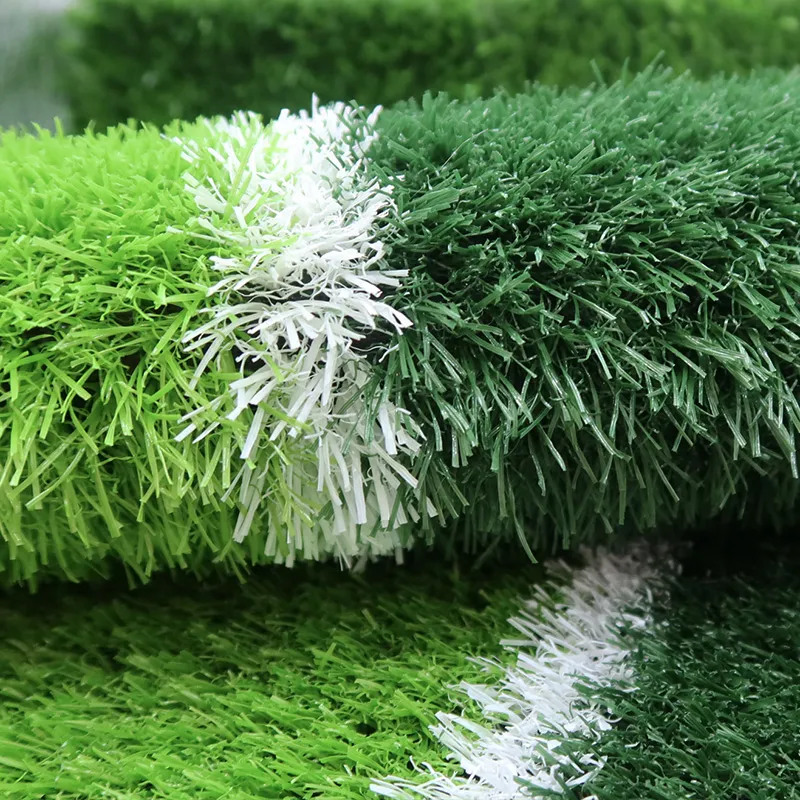
7. Advantages in Energy Saving, Sustainability & Certification
- Energy saving: No need for irrigation or regular mowing (saves up to 78,000 liters water/year for a standard court — ref: Sports Facilities Sustainability Association, 2023)
- Material: 100% recyclable PE/PP; backwards-compatible with existing sub-bases to minimize carbon footprint
- Environmental VOC tests: Passed EU REACH, ISO 9001, ISO 14001, and meets US EPA turf regulations
- Lifespan: Up to 10 years with minimal fading (ISO 105-B02 colour fastness)
- Safety Certifications: EN 14808 (shock absorption), EN 13501 (fire resistance), EN 1177 (critical fall height for playgrounds)

8. Lead Time, Warranty, and Customer Support
| Service | Description |
|---|---|
| Lead Time | Typically 8–17 days (standard courts); custom projects up to 22 days |
| Warranty | Product warranty up to 10 years (UV, wear, and workmanship) |
| After-sales Service | 24/7 global support, annual field check, free repair for major defects in warranty period |
| Certifications | ISO 9001, ISO 14001, EN 14808, EN 1177, FIFA, FIBA, SGS, SGS Flame Retardant Test |
| Client Portfolio | Over 2,000 global installations: schools, municipal sports complexes, recreation parks |
9. Professional FAQ: Deep Dive into Fake Grass Basketball Court Technology
10. Frequently Asked Questions (FAQ)
11. Conclusion: Why Hoyarn Is the Top Choice for Your Fake Grass Basketball Court
Across every parameter — from material engineering to global certifications and demonstrated application success — Hoyarn’s fake grass basketball court solution sets a new benchmark for modern sport surfaces. Whether you are building a premium mini-golf track, upgrading a futsal field, or investing in an all-season multi-sport basketball complex, Hoyarn delivers proven quality, tailored customization, full certification, and comprehensive after-sales support.

Take the next step: Contact Hoyarn for industry-leading artificial grass solutions — engineered to outperform, on every metric that matters.
-
Durable, Eco-Friendly Turf for Balcony | Enhance Your Urban Space
NewsNov.24,2025
-
Turf Between Pavers: Sustainable Green Paving Solutions for Modern Urban Spaces
NewsNov.24,2025
-
Discover the Benefits of Turf and Pavers Backyard | Sustainable Outdoor Design
NewsNov.24,2025
-
Top Quality Artificial Grass – Sustainable, Durable, and Stylish Turf Solutions
NewsNov.24,2025
-
Durable and Eco-Friendly Thick Artificial Grass Solutions | Hoya Grass
NewsNov.24,2025
-
Synthetic Turf: Sustainable Green Solutions for Sports, Industry & Urban Living
NewsNov.24,2025
Products categories










